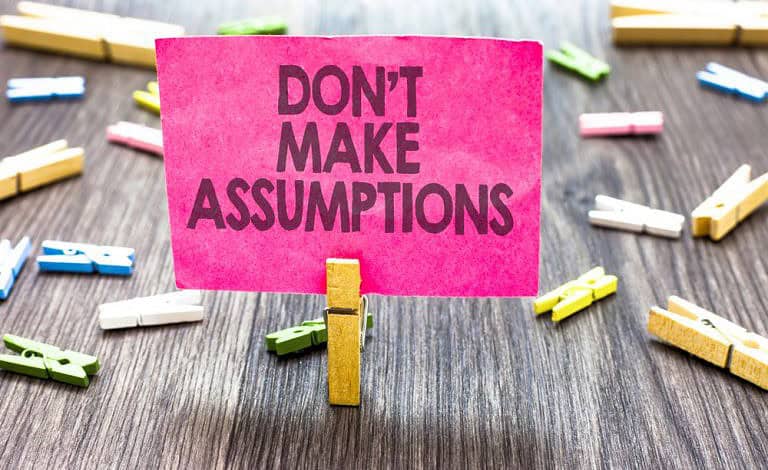One of the sneakiest threats I see in sales isn’t lack of effort, weak messaging, or even competitor pressure. The most common sales mistakes begin with making assumptions.
And ironically, the more experience a sales rep has, the more likely they are to assume. I’ve been guilty of it too. But assumptions are silent killers of deals — they lull us into overconfidence, blind us to new dynamics, and ultimately cost us opportunities that were ours to win.
I learned this lesson long before I was in sales. As a Division I defensive lineman, I couldn’t afford to assume. Every week, I faced a new offensive line with new techniques and new schemes. If I had assumed James Madison’s offensive line would block me the same way Appalachian State’s did the week before, I’d have been in for a rude awakening.
Game to game, everything changed — just like deal to deal in sales. Even if you played the same team last season, there are new coaches, new players, and new plays being called. The same is true when selling. Even if they’re an existing customer of yours:
- Who’s new on the team?
- Who’s calling the shots now?
- What’s their decision criteria today, not yesterday?
Failing to re-validate the answers to these questions is the sales equivalent of assuming last year’s game film still applies this week. It doesn’t.
Here are some of the biggest assumptions I often see salespeople make — and why they are common sales mistakes that should be avoided:
Assuming you know the metrics that matter
Research and past experience don’t equal clarity. Unless you ask directly what metrics your buyer is accountable for today, you risk watching the wrong scoreboard.
Assuming you’ve got all the decision-makers
Your primary contact may be important — but they’re rarely the only voice that matters. Miss one stakeholder, and the deal can stall in silence.
Assuming you’re the only solution in play
Your toughest competitor is often the status quo. If you don’t know what else is being considered (including doing nothing), you’re flying blind.
Assuming your customer is basing their decision on (1) key criteria
The risk of making a poor buying decision is often very high, therefore, in most major buying decisions, your customers are establishing a set of three to four key decision criteria. You need to know them ALL.
Assuming your buyer already understands your value
Explaining your solution isn’t the same as them internalizing its impact. Value must be connected directly to what they care about most.
Assuming the deal won’t stall
Confidence is good. Complacency isn’t. Without constant validation, deals stall or even fade away entirely because of small internal shifts you never saw coming.
The Mindset Shift to Avoid Common Sales Mistakes
In sports, making assumptions leads to blown plays. In sales, it leads to blown deals and customer relationships. The antidote to both is the same: preparation, curiosity, and relentless attention to detail.
That’s what separates the JAGs (“just a guy”) from the impact players. The top performers aren’t the ones who show up assuming last week’s game plan will work. They’re the ones who study film, adapt their approach, and line up ready to win this matchup.
So, the question is — which one do you want to be?
Gabe Holmes is Business Development Manager for Ignite Selling. You can connect with or follow Gabe on LinkedIn.

